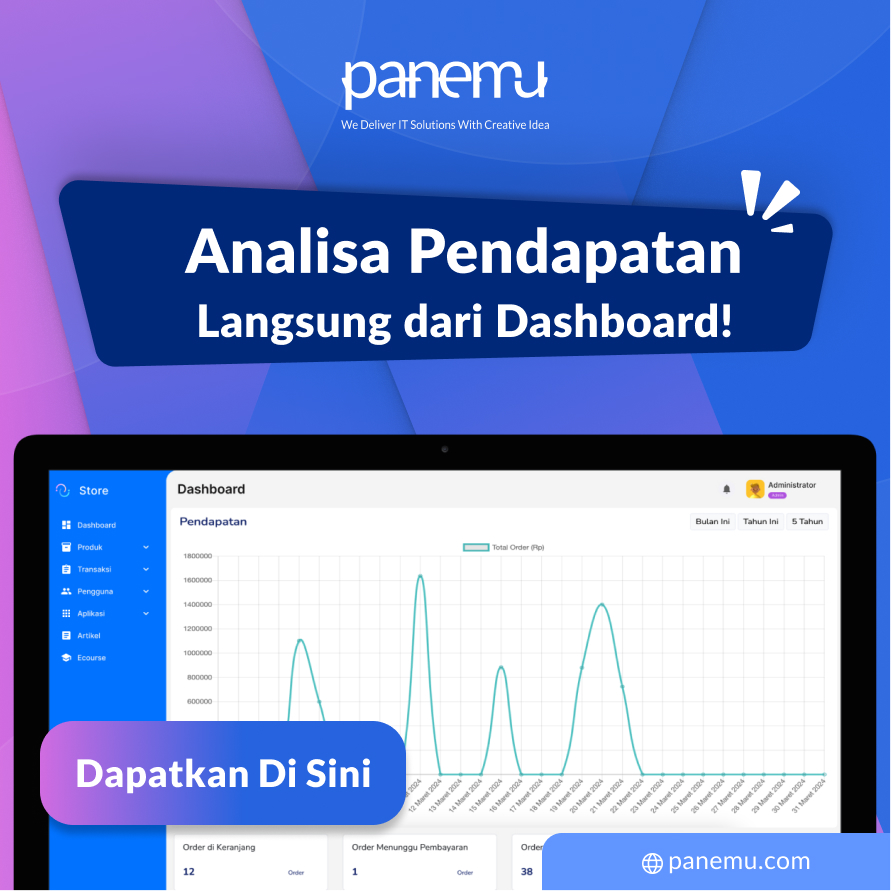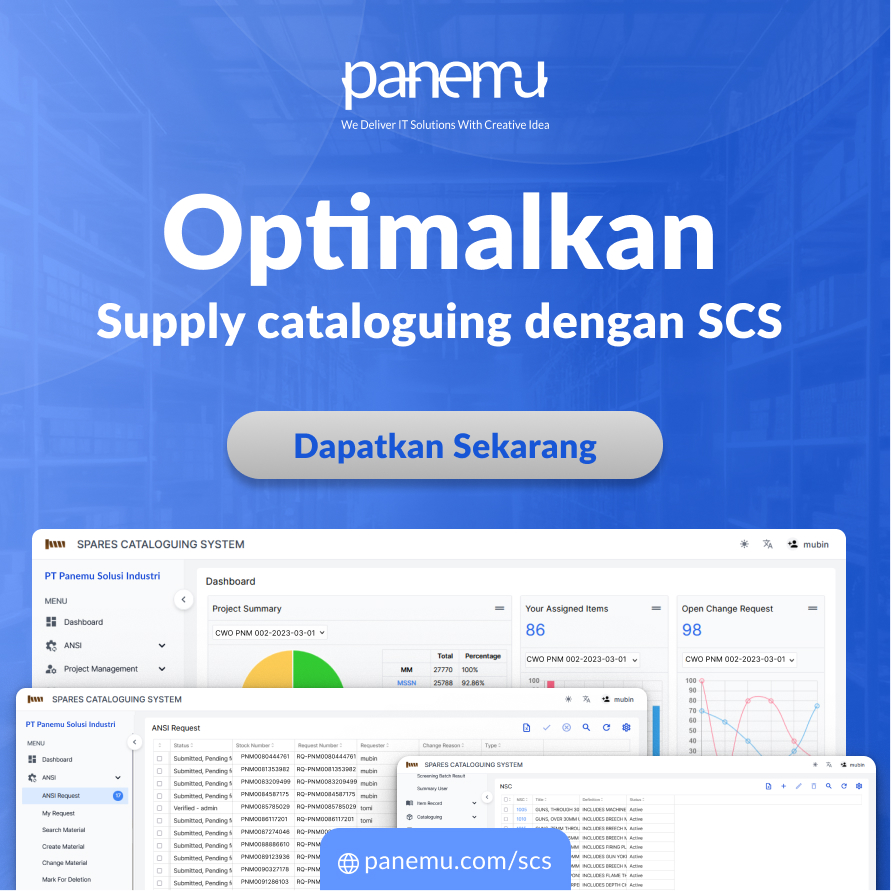As a businessman, understanding the basic principles of accounting is not only an obligation but also a necessity. Accounting provides the basis for recording, tracking and managing a company's financial condition well, as well as providing the data needed for wise strategic decision making. Without an adequate understanding of accounting principles, business people can get caught in financial chaos, miss opportunities to increase profitability, or even experience legal risks.
This article will discuss 10 basic accounting principles which are not only important but also provide a strong basis for every businessman in carrying out accurate and efficient financial operations.
1. Economic Entity Principle
The Economic Entity Principle is the foundation of a business accounting system. This principle stipulates that business entities are considered as independent economic units and separate from their individual owners. All financial activities recorded in a business's financial statements only reflect transactions that are directly related to the business' operations, not to the personal finances of the owner or other parties.
When this principle is applied, companies can build independent and objective financial reports, without interference from the owner's personal finances or other external parties. For example, if a business owner uses company funds for personal purposes, the transaction would not be considered a company expense, but rather a personal take. Thus, the company has cleaner and more accurate records regarding income, costs and assets owned.
2. Historical Cost Principle (Historical Cost Principle)
The Historical Cost Principle is a basic principle that stipulates that assets are recorded based on their cost when purchased, not based on current market value. For example, if a building was purchased for IDR 2 billion ten years ago, its value is still recorded at IDR 2 billion, even though the market price of the building may have increased to IDR 3 billion today.
This principle provides stability to financial reports and facilitates comparisons between periods. Businesspeople can see how investments in specific assets evolve over time. Although market prices can change over time, recording based on historical costs helps provide objective and consistent data in financial reports.
3. Principle of Business Continuity (Going Concern Principle)
The Business Continuity Principle assumes that the company will continue to operate in the future. With this assumption, accountants record assets, liabilities, and capital with the aim that the business will continue running and will not stop in the near future.
Why is this principle important? Because sustainability assumptions influence how assets and liabilities are valued in the future. For example, long-term assets such as buildings or machinery are calculated over several periods, with the hope that the business will continue to use these assets to support its operations. However, if the company is on the verge of bankruptcy, this principle will fail, and all assets may need to be revalued based on liquidation value.
4. Revenue Recognition Principle
The Revenue Recognition Principle states that revenue should be recorded when it is actually earned, regardless of when payment is received. In other words, if the company has provided services or sent products to customers, the revenue must be recognized, even though the customer has not made payment.
This principle is important to get a more accurate picture of income in a certain period. For example, if a company sells a product at the end of December, the revenue is recognized in December, not in January when payment is received. With this principle, business people get clear information about their company's sales performance without being influenced by payment times.
5. Matching Principle
The Matching Principle is a principle that requires costs to be matched with the income generated in the same period. The goal is to measure profit accurately by matching the costs incurred with the income earned at the same time. For example, if a product is sold in April, then the costs of producing that product must be recorded in the same month.
By using this principle, companies can find out the actual net profit without any time difference between revenue and related costs. This is very important in creating a profit and loss report that reflects the actual financial condition of the company's operations.
6. Materiality Principle
The Materiality Principle states that companies must record every significant or material financial transaction in their financial statements. An item is said to be material if it can influence the decision making of users of financial statements, for example investors or creditors.
For example, if a company makes a small inventory purchase worth IDR 100,000, this purchase may be considered immaterial and can be ignored in the financial statements. However, the transaction to purchase a new machine worth IDR 1 billion of course must be recorded because of the large material value. This principle gives accountants leeway to ignore small details in order to focus on more significant elements in financial reports.
7. Consistency Principle (Consistency Principle)
The Consistency Principle requires companies to use the same accounting method from period to period. If a company chooses a particular method for recording transactions or asset valuation, the same method should be used in subsequent periods, unless there is a clear reason for the change.
Why is this important? Consistency makes it easier to compare financial data between periods. For example, if a company uses the FIFO (First In, First Out) method for inventory, this method must still be used to make comparisons with previous year's data easier and more accurate. If a change in method occurs, the company must record the reasons in the notes to the financial statements.
8. Full Disclosure Principle
The Full Disclosure Principle requires companies to disclose material information that can influence the decisions of users of financial statements. If there is important information, such as changes in accounting policies, decline in asset value, or significant business risks, the company is required to disclose it in the notes to the financial statements.
These disclosures are critical for transparency, providing investors and shareholders with a comprehensive picture. If, for example, a company plans to expand or experiences a risk of declining profits, such disclosures provide users with complete information about the company's circumstances.
9. Principle of Conservatism (Conservatism Principle)
The principle of conservatism teaches to be careful in recognizing income and expenses. In the face of uncertainty, this principle encourages accountants to record possible losses first and delay recognizing profits until the profits are actually realized.
For example, if a company faces the risk of losing the value of receivables, then the loss on receivables is recognized first, while income from the sale of receivables will only be recorded when it is actually received. This principle aims to prevent excessive optimism in financial reports and provide a more realistic picture of the company's financial condition.
10. Accounting Period Principle (Accounting Period Principle)
The Accounting Period Principle is a principle that stipulates that financial transactions must be recorded within a certain time period, such as monthly, quarterly, or annually. With an accounting period, companies can produce financial reports regularly and provide consistent data for users of financial reports.
This principle allows management and shareholders to monitor company performance at certain time intervals. Without accounting periods, financial reports would be difficult to analyze, and companies would have no guidance regarding when to evaluate their financial performance.
Why is it mandatory for every businessman to understand the basic principles of accounting?
Understanding the basic principles of accounting is the first step for a businessman to manage his company's finances professionally. These principles not only help prepare reliable financial reports but also ensure that companies are always on track with legal compliance and transparent financial policies.
For companies that want to manage their finances more efficiently and integratedly, Odoo ERP is here as the right solution. With features that include automatic accounting recording, inventory management, income and cost tracking, as well as support from official implementers such as Panemu, your company can apply accounting principles more easily and accurately.
Panemu: Official Odoo ERP Implementer in Indonesia
As the official implementer of Odoo ERP in Indonesia, Panemu is ready to become a trusted partner for companies that want to increase the efficiency and accuracy of their financial management. With deep experience and expertise in implementation
Odoo ERP, Panemu can help your company design solutions that suit business needs and challenges in Indonesia.
With Odoo ERP solutions from Panemu, your business will get:
- Accounting Automation: Automate accounting processes to increase operational efficiency.
- Transparent Financial Reports: Financial reports that comply with standard accounting principles.
- Integrated Data Management: All financial, inventory and operational management data are in one platform.
If you want to ensure your company meets all basic accounting principles and is ready to grow with a strong financial foundation, Odoo ERP with Panemu is the right solution for you. Don't hesitate to contact Panemu today and discover how Odoo ERP solutions can help your business achieve greater efficiency and growth.


